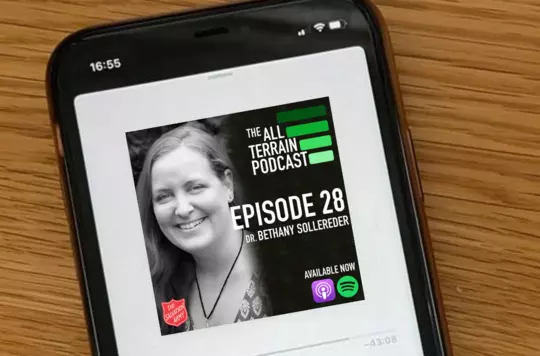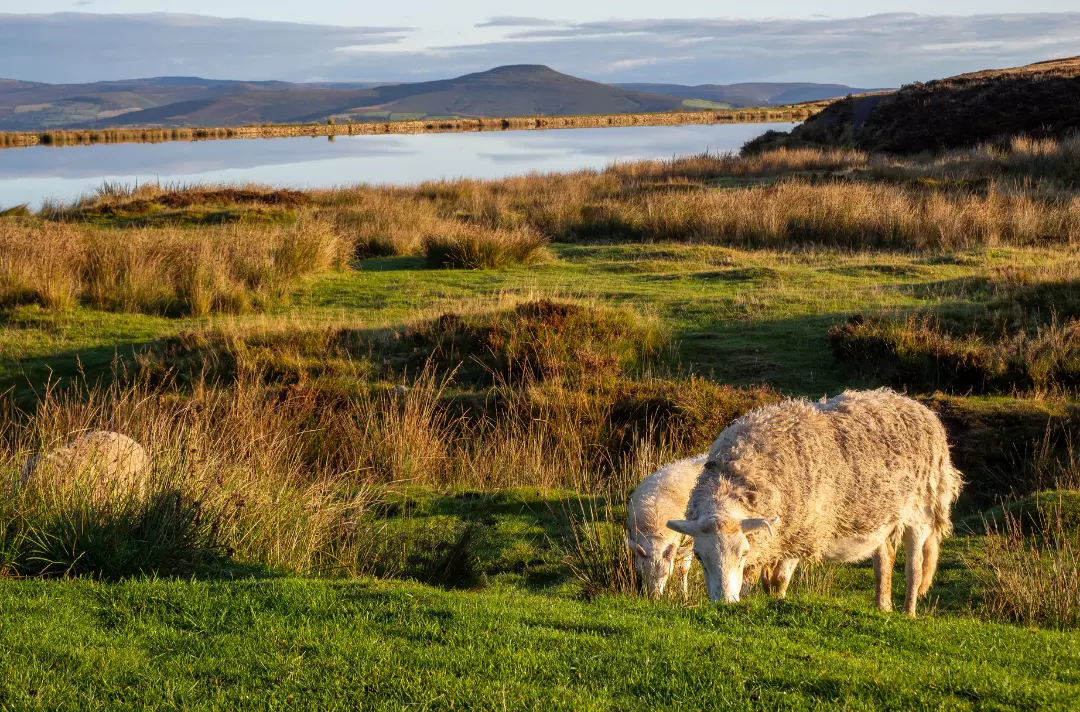30 May 2022
Come, take your inheritance
Bible study by Major Martin Hill
Major Martin Hill reminds us what Jesus requires of us.
Key text
Do not read this Bible study if you want a comfortable read and can’t accept a challenge –you won’t like it and you’ll be wasting your time!
Pause and reflect
- What does God say to you that makes you uncomfortable?
In Matthew 25 you won’t meet a gentle Jesus meek and mild, but an uncompromising Jesus tough and terrifying.
He shares two parables and one prediction. The first parable – the ten virgins (vv1–13) – describes how the foolish five, with no oil left in their lamps, were refused entry to the wedding banquet when the bridegroom arrived. Their pleas made no difference. The second parable – the bags of gold (vv14–30) – tells of how a master left three servants in charge of his wealth. The two who invested the money were rewarded, but the one who buried his bag of gold was severely punished, thrown out into the darkness without any hope of reprieve. The arriving bridegroom and the returning master allude to Christ returning as judge after a period of absence.
Jesus predicts his and their future. He throws off his usual reticence about his role, describing his majesty rather than his modesty. He refers to the Son of Man who will come as King in all his glory, sitting on a throne surrounded by angels. His role will be as judge, deciding the fate of all humankind.
The reward is God’s Kingdom, an inheritance prepared for his children. How we treat our family members, our brothers and sisters, is the only consideration.
Jesus could be referring to all humankind, but more likely to the ‘family’ of Christians. As we are ‘the body of Christ’, if we do these things for the least of part of his ‘body’ then we are doing it for him.
Pause and reflect
- Who are your ‘brothers and sisters’?
Jesus divides people into one of two categories, blessed or cursed – sheep or goats. He is the shepherd separating the flock.
The conditions are clear. Did you give food to the hungry and drink to the thirsty, did you invite the stranger, clothe the ragged, or visit those who were sick or in prison? Did you look after the needs of those awaiting trial? Yes or no?
Jesus does not ask us to defend ourselves, make excuses or offer a rationale as to why our good intentions never became actions. He knows the answer. His judgement is tough – those who are cursed are banished and condemned to fire. Even if we interpret that metaphorically, it’s brutal.
Pause and reflect
- Are you a sheep or a goat?
The criteria for judgement will not be whether you have been baptised or enrolled, received the sacraments, attended weekly worship, tithed and prayed, or whether you know your Bible or can show evidence of regret. The criteria will be what you have done.
This appears to contradict the Bible’s teaching elsewhere about faith alone being sufficient for salvation (see Romans 3:22–24), and says nothing about forgiveness, mercy and redemption. Faith requires actions and actions are the arbiter.
A similar message can be found in James 2:14–24, where James says that ‘faith by itself, if it is not accompanied by action, is dead’ (2:17). Even the faith of Abraham was proved through his deeds (see James 2:22).
Repentance means changing what we do now, not apologising later. It can mean swapping the comfort of compromise for the fulfilling discomfort of serving someone else’s need.
Do I hear Jesus saying, ‘I was stressed and you calmed me down, I was bereaved and you comforted me, I needed a lift and you took me there, I was desperate to get out and you babysat for me, I had an unexpected bill and you paid it for me, I was bullied and you defended me, my furniture arrived flat-packed and you built it for me, I was a refugee and you offered to house me, I needed time and you gave it to me’?
Jesus says the rewards prepared for us are either the Kingdom or eternal fire, suggesting motivation by prize or punishment. But I interpret it as a description not a motivation, otherwise we are living by law and not by love.
Remember, Jesus said to his disciples: ‘A new command I give you: love one another. As I have loved you, so you must love one another. By this everyone will know that you are my disciples, if you love one another’ (John 13:34 and 35).
Maybe the sheep were those who loved enough to really care.
Pause and reflect
- When is love toughest?
Written by

Major Martin Hill
Retired, Midlothian
Discover more
See more
Come, I will give you rest
Major Noreen Batt reminds us that Jesus offers us a way to work, rest and play in his Kingdom.

Apest: Apostles
Captain Callum McKenna highlights what it means to be ‘sent’ with God’s message.

Recommended resources for devotions
Ideas for your time with God.

The All Terrain Podcast: Episode 28
Host Matt White is joined by Dr. Bethany Sollereder for this month's hypothetical hike.
